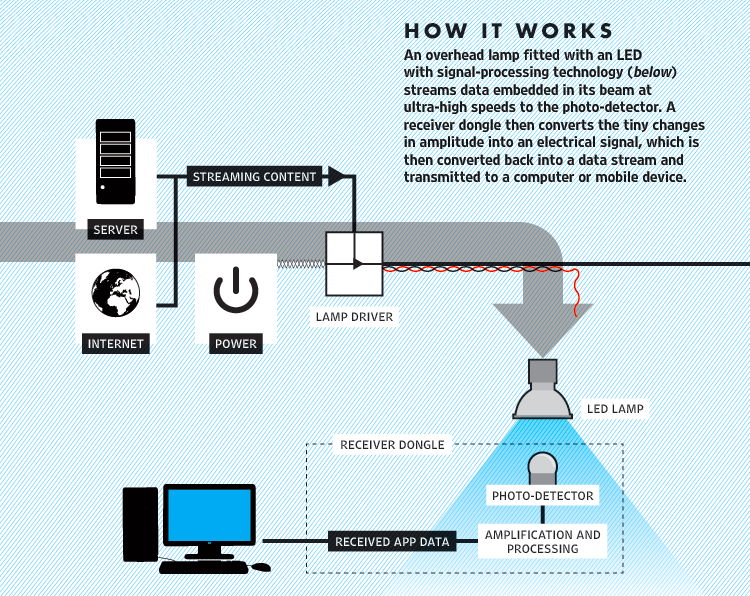 Is this the newest and most smoking-hot trend for internet devices?
Is this the newest and most smoking-hot trend for internet devices?
Quite possibly.
From Yahoo.com:
Internet by light promises to leave Wi-Fi eating dust
by Laurie Fillon
Barcelona (AFP) – Connecting your smartphone to the web with just a lamp — that is the promise of Li-Fi, featuring Internet access 100 times faster than Wi-Fi with revolutionary wireless technology.
French start-up Oledcomm demonstrated the technology at the Mobile World Congress, the world’s biggest mobile fair, in Barcelona. As soon as a smartphone was placed under an office lamp, it started playing a video.
The big advantage of Li-Fi, short for “light fidelity”, is its lightning speed.
Are you ready for this?
Laboratory tests have shown theoretical speeds of over 200 Gbps — fast enough to “download the equivalent of 23 DVDs in one second”, the founder and head of Oledcomm, Suat Topsu, told AFP.
“Li-Fi allows speeds that are 100 times faster than Wi-Fi” which uses radio waves to transmit data, he added.
The technology uses the frequencies generated by LED bulbs — which flicker on and off imperceptibly thousands of times a second — to beam information through the air, leading it to be dubbed the “digital equivalent of Morse Code”
With television and a larger portion of bulk entertainment content going over the internet these days, now to include voice traffic (once held by landline telephones), tablets, smart phones — and soon to include the “internet of things,” bandwidth, production, venue and speed are about to become absolutely critical.
This new technology could be not just ground-breaking but, in a very short time, mandatory.
BZ



